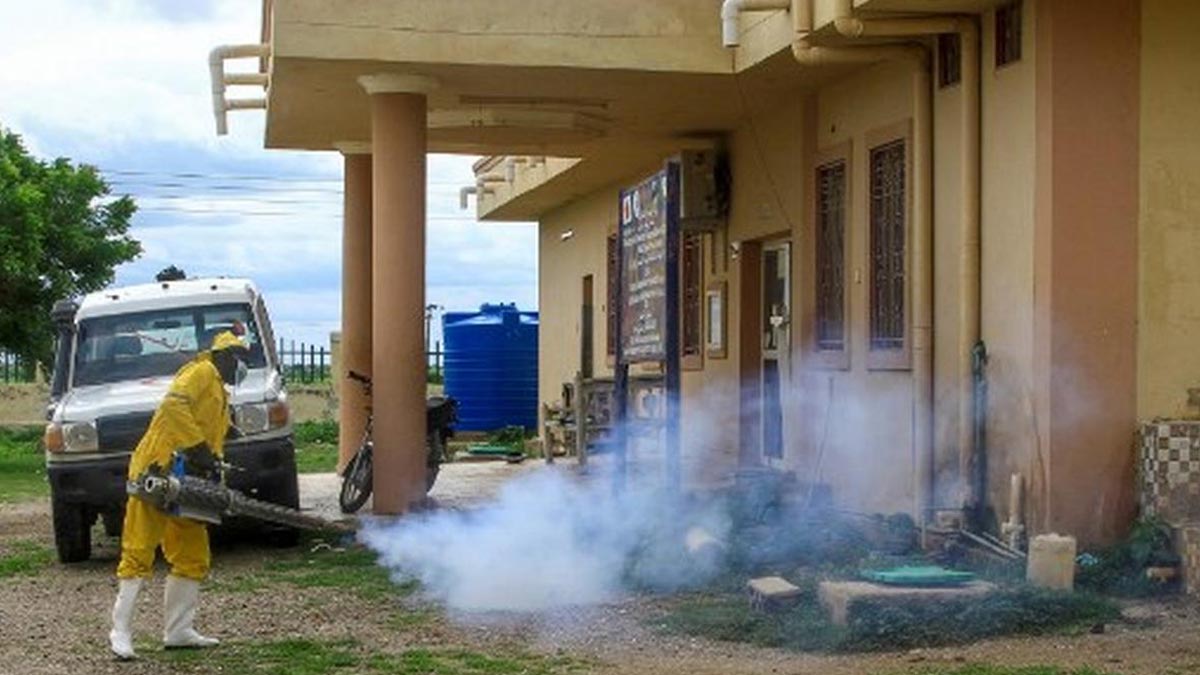
Sudan, a nation already reeling from civil war and environmental disasters, now faces a severe cholera outbreak that has claimed at least 22 lives and affected hundreds more. The outbreak, which has rapidly spread across the country, is exacerbating the humanitarian crisis in a region already struggling with conflict, displacement, and infrastructure collapse.
Table of Content:-
Health Authorities Confirm Rising Death Toll
Health Minister Haitham Mohamed Ibrahim confirmed on Sunday that the cholera outbreak has resulted in 22 fatalities and 354 confirmed cases. These numbers are expected to rise as more cases are reported from across the war-torn country. The minister declared a cholera epidemic on Saturday, attributing the outbreak to adverse weather conditions and the contamination of drinking water sources.
The eastern state of Kassala has been particularly hard-hit, and authorities there, in coordination with United Nations agencies and public health experts, have been working to contain the outbreak. The cholera virus was officially detected by the public health laboratory, prompting immediate action from both local and international health bodies.

WHO Raises Concerns Over Underreporting
Margaret Harris, a spokesperson for the World Health Organization (WHO), expressed concerns over the true extent of the outbreak. During a media briefing on Friday, she reported that 11,327 cholera cases and 316 deaths had been documented across Sudan. Harris warned that these figures are likely underreported due to the chaotic situation in the country, where many cases might go unrecorded.
Cholera is a highly contagious disease that causes acute diarrhoea, leading to severe dehydration and, in many cases, death within hours if left untreated. The disease is typically spread through the ingestion of contaminated food or water, making it particularly dangerous in areas with poor sanitation and limited access to clean water. Children under five are especially vulnerable to the disease's deadly effects.
Also Read: Indian Airports And Borders On High Alert As Mpox Cases Rise Globally
A History of Cholera in Sudan
Sudan is no stranger to cholera outbreaks. A significant outbreak in 2017 led to the deaths of at least 700 people and sickened approximately 22,000 within two months. However, the current outbreak comes at a particularly dire time for the country, which is grappling with the aftermath of devastating floods and ongoing civil conflict.
Floods and War Compound the Crisis
Recent seasonal floods have only worsened the situation in Sudan, leading to further displacement and destruction. According to local authorities, dozens of people have died, and critical infrastructure has been washed away in 12 of Sudan’s 18 provinces. The United Nations’ migration agency reports that about 118,000 people have been displaced due to the floods, adding to the growing number of internally displaced persons (IDPs) in the country.
Also Read: Parvovirus B19 On The Rise In The US; Know All About The Infection
The civil war, which erupted in April last year, has plunged Sudan into chaos, turning cities like Khartoum into battlefields and crippling the nation’s healthcare system. The conflict, primarily between the Sudanese Armed Forces (SAF), led by Abdel Fattah al-Burhan, and the Rapid Support Forces (RSF), under Mohamed Hamdan Dagalo (known as “Hemedti”), has devastated the country’s infrastructure. Hospitals and medical facilities, already stretched thin, have been forced to close, leaving the population with little access to healthcare.
The war has claimed thousands of lives, displaced over 10.7 million people, and driven many into severe hunger. Famine has been officially declared in a sprawling camp for displaced people in the northern region of Darfur, further highlighting the dire humanitarian situation in the country.
International Efforts to Resolve the Conflict
Despite the ongoing crisis, there is a glimmer of hope as international efforts to broker peace continue. A new round of talks aimed at ending the 16-month conflict in Sudan began in Switzerland on Wednesday, although the Sudanese army has not participated. The talks, supported by the United States, Saudi Arabia, Switzerland, the African Union, Egypt, the United Arab Emirates, and the United Nations, aim to bring the warring factions to a ceasefire agreement.
In response to mounting international pressure, Sudan’s military-controlled sovereign council announced on Sunday that it would send a government delegation to Cairo to meet with US officials. This move is seen as a potential step toward engaging in the ongoing truce talks in Switzerland, though significant challenges remain.
Bottomline
As Sudan faces this latest health crisis, the international community’s support is more critical than ever. Efforts to contain the cholera outbreak must be coordinated with ongoing humanitarian aid and conflict resolution initiatives to prevent further loss of life. The people of Sudan, already enduring immense suffering, now confront yet another threat to their survival. The hope is that with continued global attention and intervention, the spread of cholera can be halted, and the broader crises afflicting the nation can be addressed.
Also watch this video
How we keep this article up to date:
We work with experts and keep a close eye on the latest in health and wellness. Whenever there is a new research or helpful information, we update our articles with accurate and useful advice.
Current Version